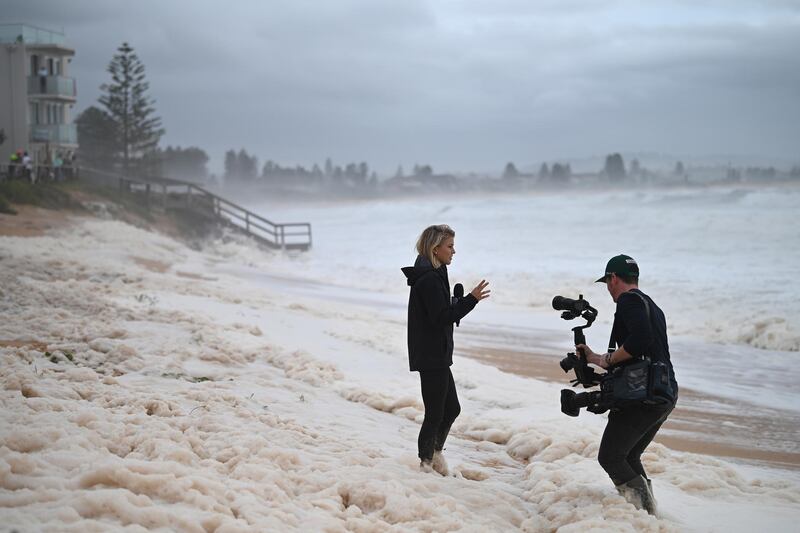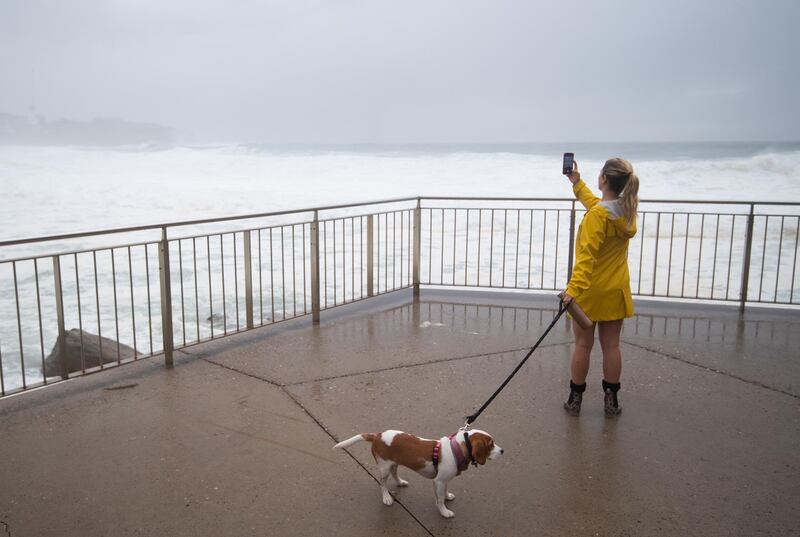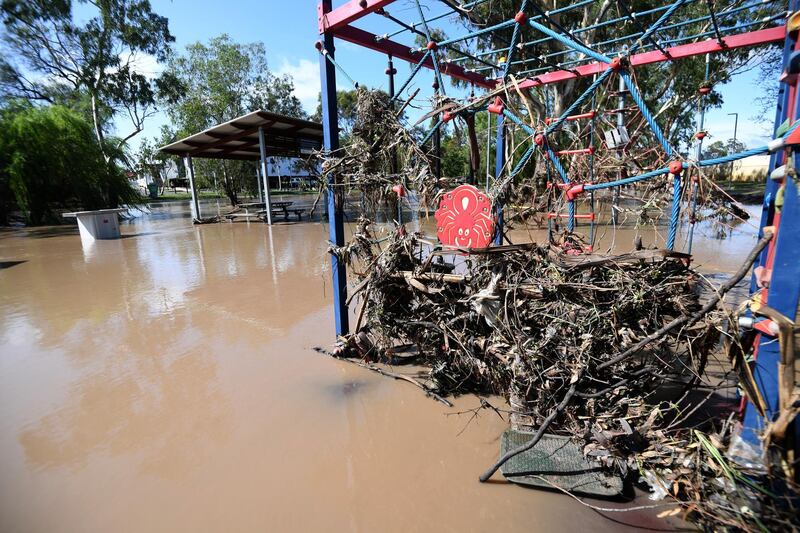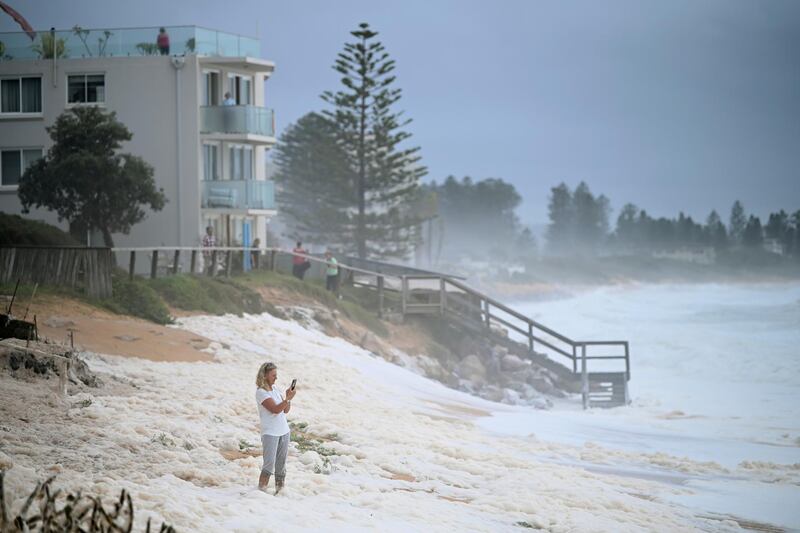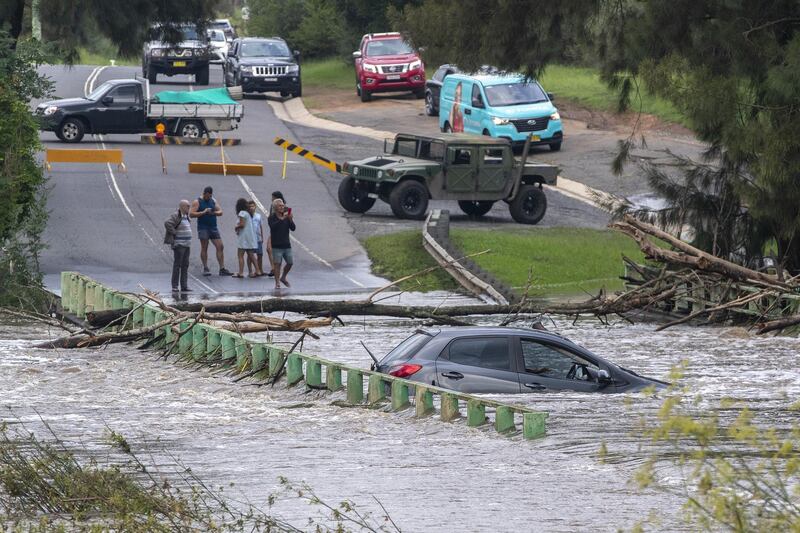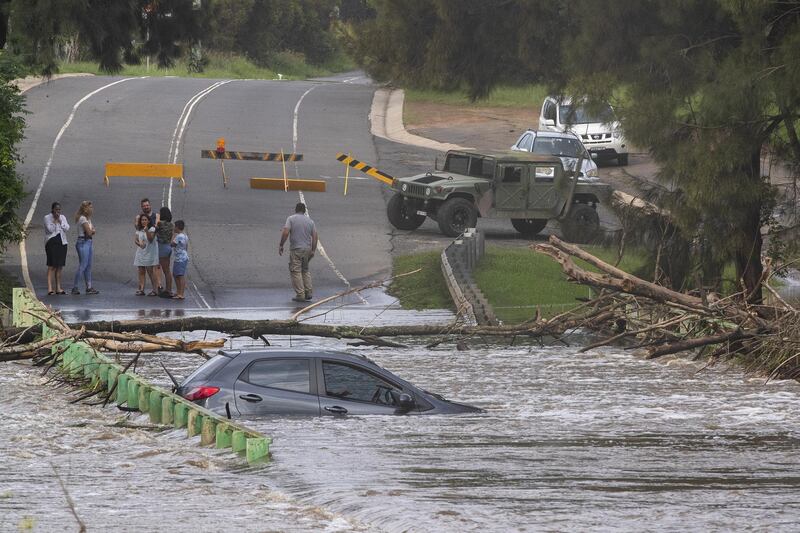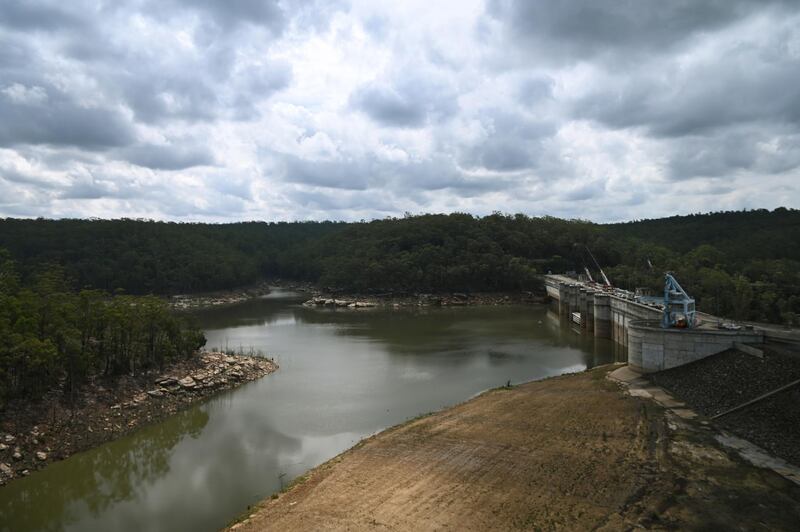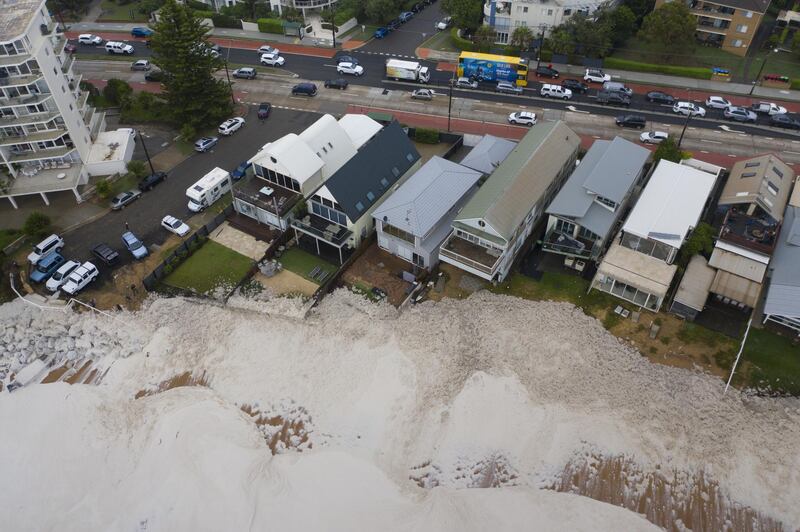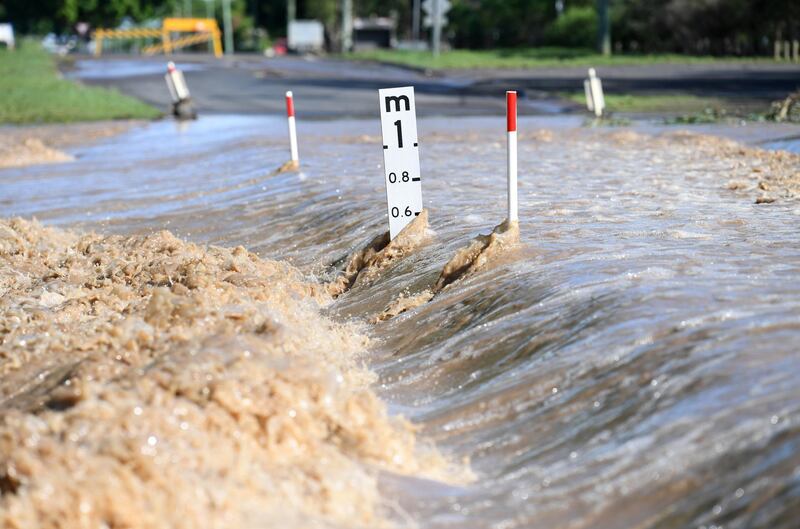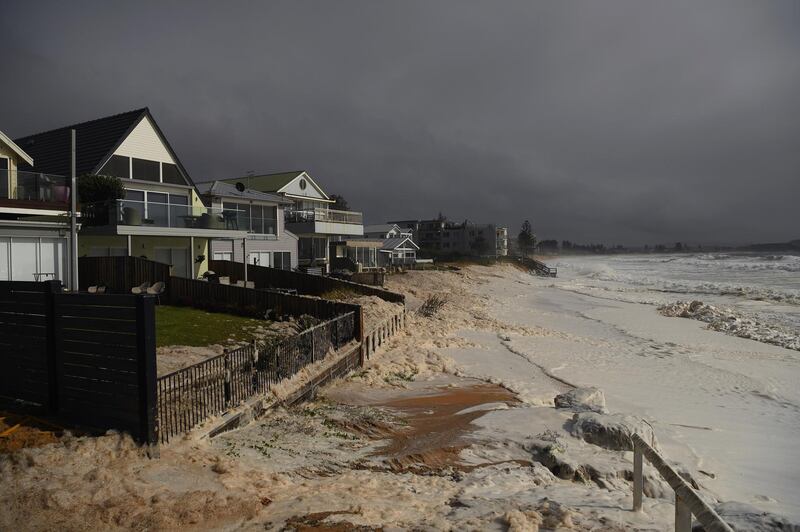The bushfires are out, green shoots are uncoiling from the charred landscape and, in further evidence that Australia is a land of extremes, it’s not raining – it’s pouring.
Sydney has seen its heaviest deluge in 30 years, with 391.6mm of rain falling in just four days, leading to flooding and power outages. The parched city’s dam levels are now soaring - although some inland regions are yet to see any relief from the drought.
The Currowan fire, one of the worst of a network of blazes that have wreaked devastation across the eastern states for months, has finally been extinguished after burning through 499,621 hectares and destroying 312 homes over the course of 74 days.
In total, more than 10 million hectares were burnt by the fires, which killed 33 people and destroyed 2,500 homes.
Now Australia’s citizens are watching to see what their leaders will learn from the unprecedented disaster.
In the state of New South Wales, which bore the brunt of the crisis, an independent inquiry has already started. On the Federal level, draft terms of reference have been set out for a Royal Commission and they include a statement that the changing global climate “carries risks for the Australian environment”.
However, while the ferocity of the fires has forced Prime Minister Scott Morrison to admit the connection to climate change, scepticism abounds over whether his conservative Coalition government will make any significant policy changes.
Mr Morrison has so far stood firm against diplomatic and domestic pressure to join Britain and other countries in committing to net-zero carbon emissions by 2050 - the target which the Intergovernmental Panel on Climate Change says the world must meet in order to limit global warming to 1.5°C.
Australia has also been criticised for trying to meet its obligations under the Paris Agreement by using controversial Kyoto carryover credits – an accounting loophole, rather than an actual reduction in emissions.
While Australia is dragging its feet when it comes to climate change, it is becoming increasingly apparent that its stance is out of step with its citizens.
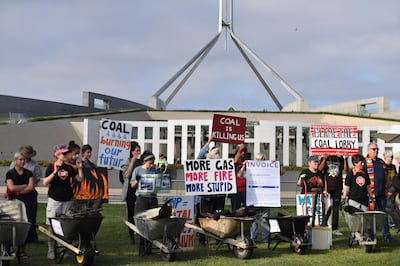
A YouGov poll for the Australia Institute in January found that 79 per cent of people were concerned about climate change. Eighty one per cent supported boosting renewable energy and a slim majority of Coalition voters – those who support the Morrison government – actually backed a zero-carbon target for 2050 and an end to fossil fuel subsidies.
Richie Merzian, Climate & Energy Program Director at The Australia Institute, said the majority of Australians wanted their government to increase climate action, but the leadership had responded by the latest crisis by “trying to pin the unprecedented bushfires on anything but climate change”.
"There is a gap between public expectation and government policy and it only appears to be widening," Mr Merzian told The National. "On the ground, Australia has the highest proportion of rooftop solar panels in the world. But individual action can only do so much.
“The Government went out of its way to undermine electric vehicles during the federal election, despite Australia relying on imported liquid fuel for 90 per cent of its need.
“The Government is also going out of its way to support new and existing coal and gas-fired power stations, despite renewable energy becoming the cheapest form of electricity on the grid.
“With all eyes on Australia, the Government should use this moment to increase Australia’s climate efforts at home and abroad, rally countries for higher ambition, not fuel disinformation and shirk responsibility.”
While the solutions may appear obvious to many, the issue of climate change has plagued Australian politics for the past decade, contributing to the downfall of at least three prime ministers.
The country is one of the world’s biggest carbon emitters per capita, and its big manufacturers are heavy power consumers dependent on coal and gas. Protecting those sectors - and their employees - as well as keeping the cost of energy down has seen more than a decade of contention over climate policies.
The issue is once again causing fractures between the hardline members of the National and Liberal parties that make up the Coalition government and their more centrist colleagues. It came to a head again last week over calls from some members to underwrite a new coal-fired power station in Queensland – a move former prime minister Malcolm Turnbull labelled as “nuts”.
Mr Morrison’s public stance on climate change has softened somewhat following the bushfires and intensifying public outrage, but he also told Channel Nine he would not “be bullied” into more action.
He has pointed to emissions reduction measures already underway and, in response to questions in parliament, argued that hazard reduction might be more important than emissions reduction when it came to protecting people from fires.
But his attempts to deflect criticism are being met with growing pressure both domestically and globally.
On Monday Independent MP Zali Steggall, who toppled former Coalition Prime Minister Tony Abbott from his Sydney seat of Warringah with the promise push for more action on climate change, announced she would introduce a private members bill for a conscience vote.
The bill, to be presented to the lower house of Parliament on March 23, outlines ways to bring emissions down to zero by 2050 and offers adaptation and mitigation measures to make Australia more resilient. It is modelled on the UK’s 2008 Climate Change Act, a law introduced by David Cameron’s Conservative Government.
“Eighty percent of the public wants to see us addressing climate change. The impacts are real. We are experiencing them now,” Ms Steggall told Reuters.
In a strong signal from the business community, the bill was immediately backed by industry leaders including Business Council of Australia CEO Jennifer Westacott.
“If we could get the two political parties to agree to that and legislate it, we would have made a massive advance in this country, because we would know where we’re going,” Ms Westacott said. One of the key criticisms from businesses has been a lack of certainty when it comes to energy policy.
Convincing Australia to increase its emissions reduction targets is also seen as a crucial plank in making a success of the COP26 summit, which the UK will host in Glasgow later this year.
Speaking from the capital, Canberra, last week on his first overseas visit since Brexit, UK Foreign Secretary Dominic Raab called on Australia to work with other countries in bringing down carbon emissions.
"It is a huge challenge … but we have got, and I know that Australia has got, the innovators, the entrepreneurs who can come up with green technology which can help find a way forward," Mr Raab said in comments published by The Guardian. "We have had a really good constructive conversation about it and we will continue that conversation with our Australian friends, but also all of the other big players in that debate."
He declined to comment on whether a post-Brexit free trade agreement between the two countries could hinge on Australia capitulating.
But Mr Morrison has already drawn a hard line on the issue, commenting that he would "never make a commitment like that if I couldn’t tell the Australian people what it would cost them".
On the other hand, attempts have been made to calculate the cost of inaction. Ahead of the 2019 election, the Australia Institute said it would reach A$131 billion per year by 2100, excluding the cost of natural disasters.
Then there's the emotional toll.
The bushfire crisis has been "really wounding of the Australian psyche", Lesley Hughes, a professor and climate scientist at Macquarie University said. "People are more fearful of the future because they glimpsed the future this summer."
